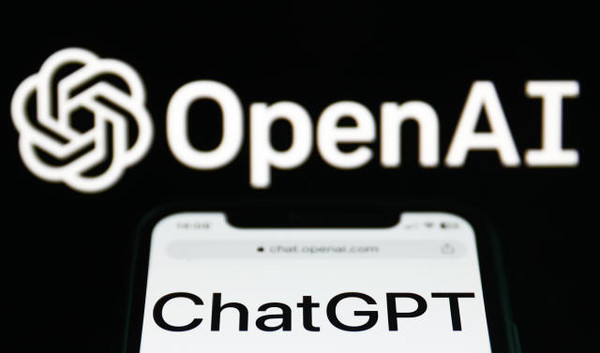AI in Society: A Future We Should Try to Change?
It used to be that only tech companies and academics had access to sophisticated AI. However, in November 2022, OpenAI released ChatGPT and ushered in a new era of AI — an era wherein the general public can easily access powerful artificial minds. Not even half a year past that, GPT-4, an improved version of the language model system that powered ChatGPT, was also made accessible to everyone by OpenAI. With AI becoming a tangible reality for everyone, this month’s Debate discusses whether or not we should resist the impending reign of AI.
AI has seen a lot of media coverage over the past decade. We’re at the point in history where the proliferation of AI is mostly regarded as a positive series of events; with the help of AI, we travel in self-driving cars, do our work more productively, and even get some sort of entertainment. Nevertheless, AI’s potential is not as cute and shiny as what it appears to be now, and in fact, the following aspects are indeed concerning — to the point where we question ourselves whether creating AI was a good move in the first place.

Currently, there is a certain amount of danger associated with the development of AI. Such danger is seeing light as bots and deepfakes. You must have certainly seen or heard deepfakes at this point, most of which are probably videos on YouTube or ridiculous TikTok content, like Joe Rogan, Elon Musk, and Jordan Peterson talking to one another while playing Minecraft on a shared server. The “cyber wit” we get after having used the Internet so much in our lives, coupled with the absurdity shown in those videos, allows us to instantly recognize the fakeness and AI’s touch. Now, imagine these videos are shown not only to those who have unrestricted access to the Internet, but to all 8 billion people on the planet — most of them will at least question whether what they are watching is real, if not totally fall for the bait. Such uncertainty lays a good foundation for misinformation and manipulation on a psychological level. Political campaigns and news media can take advantage of such unawareness, leading to possibilities of mass control. One doesn’t need to be totally Internet-uneducated to get manipulated by threats. Imagine that you get a call late at night from your parents or friend who is asking for money. Their voice and intonation sound so realistic that you don’t even consider the possibility of talking to a computer program and you send your savings to them. This is what AI is capable of even today.

The danger of AI is not only to do with bots and deepfakes. One of the most evident drawbacks of AI is job loss. Of course, utilizing AI as a worker to perform basic tasks is beneficial for the big tech industry, but the benefits are coming at a huge expense. Millions of people currently making a living from doing their “simple” tasks are about to lose their jobs to AI. We can argue that this is a natural outcome of an industrial revolution. However, during the first three industrial revolutions, just as many jobs were brought as were lost. Automatization with AI eliminates a lot of jobs, but it fails to create the same number of jobs in return. For any new AI-related job created, such as AI engineer or AI researcher, there would be far more jobs lost. The imbalance is amplified when we talk in terms of the actual number of jobs — a small team of AI programmers will take away a job from thousands of people. While it would save enormous amounts of money and effort for the big tech, growth will be very polarized in the industries it affects.
A more subjective drawback of AI is its inability to be creative. Creativity cannot be an inherent trait of AI, as all AI algorithms are trained based on human creations. We will never be able to teach AI to produce something that has never been produced before — the definition of creativity. In order to achieve something that is truly innovative, we cannot afford to think in terms of established patterns. Scientific progress and mind-blowing pieces of art are a result of the effort of bright human minds, so we should not expect any change in paradigm from AI-produced copycats.
On a grand scale, the world as it is today is too small for both humans and AI. Humans still have lots of problems to solve; with wars, famine, illness, and other global issues that require human mind and effort all persisting on our planet, do you really think that it’s worth introducing another player to the game of life?

